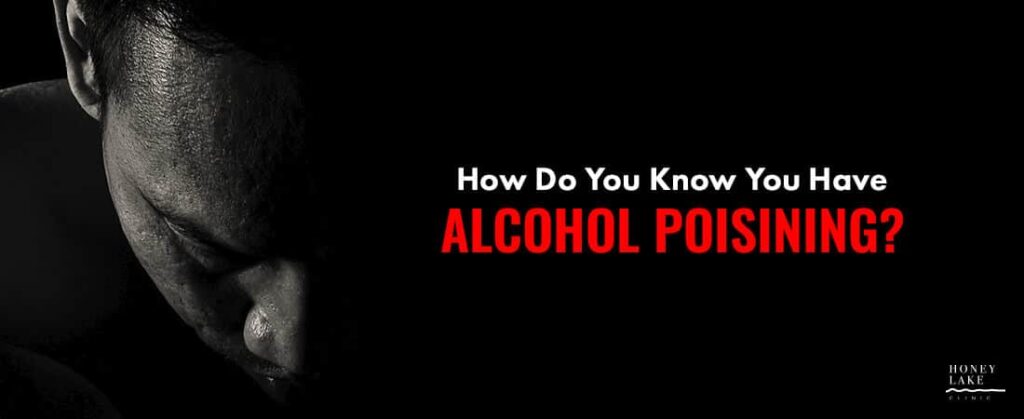How Do You Know You Have Alcohol Poisoning?
According to the Centers for Disease Control, there are approximately 2,200 alcohol poisoning deaths per year, which is around six per day. Because most people don’t understand the limits of alcohol tolerance in the body, alcohol poisoning can occur quickly, and without much warning.
Alcohol poisoning happens when a person drinks too many alcoholic beverages in too short a time.
Alcohol poisoning occurs when a person consumes too much alcohol, flooding the bloodstream and affecting areas of the brain that control vital physical functions like breathing, heart rate, and temperature. Depressed or uneven breathing, cool body temperature, and seizures are all potential symptoms of alcohol poisoning.
Binge drinking is a major cause of alcohol poisoning and alcohol related deaths in the US. The definition of binge drinking is four or more drinks in a two-hour period for women, and five or more drinks in the same time period for men.
Do you or does someone you know have a drinking problem? We can help.
Is it Alcohol Poisoning?
Alcohol Poisoning Symptoms include:
- Confusion or disorientation
- Vomiting
- Hypothermia
- Inability to stay conscious
- Cold or clammy skin
- Lack of physical coordination, including an inability to walk
- Irregular pulse
- Depressed breathing
- Seizure
- Choking
- Loss of bowel or bladder control
- Blue-tinged skin, especially around the lips or under the fingernails
Seek medical help for a friend who has had too much to drink. Your friend or loved one may become angry or embarrassed if you call 911, but it’s better to have them alive and angry than dead.
DO NOT do any of the following:
- Do not give the person coffee. Caffeine can cause further dehydration.
- Do not attempt to feed the person. They may choke on the food due to a lack of gag reflex or ability to swallow.
- Do not give the person any other medications. Mixing drugs and alcohol will likely make the alcohol poisoning worse.
- Do not make the person throw up to get alcohol out of the stomach. Their gag reflex will likely not work and they could choke.
- Do not walk the person around, in an attempt to “walk it off.” Reduced physical coordination could lead to falls or other accidental harm.
- Do not put the person in a cold shower. This could increase hypothermia.
- Do not let the person “sleep it off.” Alcohol is likely still digesting into their bloodstream and their symptoms could get much worse.
- Do not leave the person alone.
- Do not allow the person to drink more alcohol.
What should you do?
- Stay with them. Check often to make sure they are still conscious and responsive.
- Make certain that they stay on their side, not their back.
- Do not ridicule, judge, threaten, or try to counsel them.
- Remain calm and be firm. Avoid communicating feelings of anxiety or anger.
- Keep them quiet and comfortable. If they are in the sun, move them to the shade. If cold, move them to a warm place and offer a blanket.
- Remember that only time will sober up a drunk person.
Professional medical treatment for alcohol poisoning is essential. Initial treatment may include:
- Intubating or other methods to prevent choking and allow breathing
- Oxygen therapy
- Intravenous fluids to rehydrate the person
- Vitamins and glucose to raise blood sugar and prevent seizures
- Stomach pumping to remove alcohol remaining in the stomach
- Hemodialysis to filter toxins and waste from the blood directly
Get help after alcohol poisoning
If a person experiences alcohol poisoning, it doesn’t necessarily mean they have an alcohol use disorder, though people struggling with alcohol use disorder do have an increased risk of experiencing alcohol poisoning.
Rehabilitation programs can help those in need to fully recover from alcohol abuse. Medical detox is needed in cases of alcohol withdrawal since withdrawal symptoms can be life-threatening in some instances. Comprehensive therapy should follow medical detox, ensuring the issues behind the substance abuse are fully addressed.
This is scary, we know. But you don’t have to face it alone. We can help.
At Honey Lake Clinic, we believe faith-based treatment, encompassing your spiritual, physical and mental health, will provide you with the long-lasting tools and knowledge you need to break alcohol’s grip.



